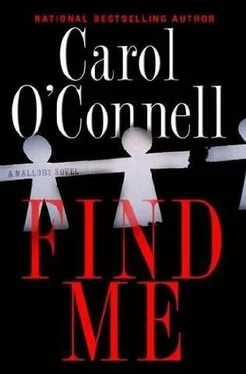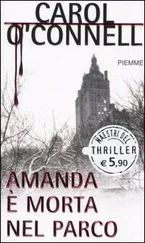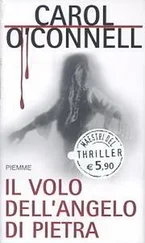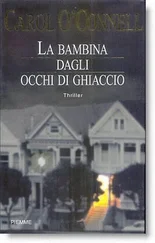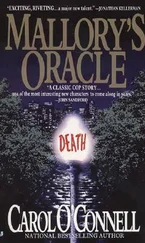“I never took a dime from any of them,” said Dr. Magritte, defensive now that she had found his sore spot. “I actually made quite a lot of money in private practice. More than enough to retire. And all my work with the parents is free of charge.”
This was the long-awaited schism.
“Let’s say I believe you,” said Nahlman. “Maybe you wanted to atone for shielding a killer of little girls. You saw your chance with the caravan. You wanted to smoke him out. One last shot at grace-but not what I would’ve expected from a priest or a doctor.” She reached out and ripped the knapsack from his lap. With her one free hand, she worked the zipper, then pulled out his old rusted gun. “You were planning to murder the freak.”
His silence was all the acknowledgment she needed.
“Cold-blooded, premeditated murder,” she said, “that’s way more Christian than blowing off the seal of the confessional. But it won’t work. He always attacks from behind. I think he’s been doing this for decades- lots of practice. You won’t hear him coming up behind you till he’s close enough to slit your throat.” She hefted the weight of the gun in her hand. “But I can kill him for you. Tell me how to find him.”
Magritte only stared at the windshield. The glow of the campground was in sight. He was almost free.
But not quite.
Nahlman pulled onto the shoulder of the road and killed the engine. “Mallory tells me you’ve known this freak since he was a kid.” Ah, that startled him. So the New York detective had been right, and the killer had started very young. The skeleton found in the deepest grave might be older than she had imagined. “So tell me this.” Nahlman leaned over to open the glove compartment. She pulled out the small blue pouch. “Exactly when did he give this to you? Let me put that another way. How many little girls died while you were walking around with these bones in your pocket? You won’t even tell me that much? Well, that’s good. Now I can make up a date.” She started the engine. “I can tell the parents that you’ve had these little bones for maybe twenty, thirty years-while their children were being slaughtered like-”
“You’re going to tell them?”
A little piece of the truth was laid out in his words. Perhaps it had taken thirty years or more to kill a hundred little girls.
“No, I won’t tell them.” Nahlman put the car back on the road. “If those people knew what you’d done to them, they’d all want a piece of your hide… So that would be murder.”
Silence prevailed until Nahlman drove up to the campsite and parked the car. She placed the old man’s g u n with the pouch in the glove compartment. The absence of a weapon might make him less brave, less inclined to wander away from the moles.
Dr. Magritte leaned toward her. “Why didn’t you give the pouch of bones to Agent Berman?”
“Let me make a confession,” said Nahlman. “Forgive me, Father, for I have sinned. I broke the damn rules. My boss is a lazy-ass screw-up. If I gave him the bones, he’d lock you up for murder. The investigation would be shut down-and people would die. You can live with pointless death, but I can’t. ”
In the background of the long-distance conversation, Mallory could hear the traffic of a Chicago street. Kronewald excused himself to close the window, and now he came back to the phone.
“I called the FBI lab,” he said. “When I asked about Nahlman’s s oil samples and the bones, they told me they didn’t have any results yet. Well, I knew that was crap. They were just playing dumb. And you know what, kid? It’s just a gut feeling, but I think this was the first time they were hearing about-”
“Dale Berman never sent in the samples for analysis,” said Mallory. “And the lab never got any of the bodies, either. Did you find me a victim who lived near Route 66?”
“Yeah, but I had to go back forty years to find a girl who fit the victim profile-Mary Egram, five years old when she disappeared. Her house was on a state road, an old segment of Route 66.”
Kronewald fell silent. Mallory could hear the rustle of paper, and she knew he was paging through a hard-copy version of a police report. Forty-year-old unsolved cases would not show up on his computer screen.
“Okay,” he said, “the catching detective on that case was a guy named Rawlins. He’s dead now, but I got his old notes. He suspected the father. John Egram was a long-haul trucker-could’ve dumped the girl’s body anywhere. The Egrams had one other kid, a ten-year-old named Adrian. The parents skipped town when Adrian was in the hospital. Nice people, huh? At the time, a priest had temporary guardianship. Not much detail on that. Just a few lines of rough notes. Now here’s the kicker. The priest who had guardianship-”
“Paul Magritte. I know,” said Mallory. “Anything else?”
“Well, this kid, Adrian, got bounced around from one foster home to another.”
“Sounds like a recipe for a serial killer,” said Mallory. “Any pictures?”
“Nope, just an old police report from downstate Illinois. When Adrian was fifteen, he stole a car from his foster home and ran away. Works nice with your car-thief angle. But the cops never caught him, so we got no prints in the system. No social security number, either. I figure he stopped being Adrian Egram the day he stole that car.”
“But he spent five years in foster care. Not one picture?”
“Mallory, in your dreams Child Welfare has records that go back that far-instead of files rotting in storage boxes. But I got something else you might like. Most of the houses in the Egram neighborhood were torn down or they fell down. We found one of the neighbors in a nursing home. She’s got Alzheimer’s but her long-term memory is still strong. The old lady says Adrian’s mother worked two jobs, so the little boy used to ride with his dad on cross-country hauls. They were probably on the road two hundred days a year. Then Mary was born and it was time for Adrian to start school. No more truck rides with Dad. Now Adrian and his sister didn’t get along too well. And here’s where it gets strange. Adrian was ten years old-Mary was only five.”
“And Adrian was afraid of his little sister,” said Mallory.
“Yeah. You were right. Our perp doesn’t like being touched. Every time the girl went near her big brother, the boy ran like hell. That was gonna be my big finale. So tell me something, kid-why do you bother to call in for updates?”
Mallory ended the cell-phone call, disinclined to waste words, and it would have taken a long time to describe what she was looking at. The detective could see her cold breath on the air as she walked down the rows of rough wooden pallets, each one the bed of a child. Most were skeletons, but some had been mummified and still held the shape of sleeping girls whose lives had been interrupted on the way to school one day. In the paperwork for this warehouse, twenty miles outside of Amarillo, Texas, the field-office rental fee was itemized under a file name: The Nursery.
A silver-haired man in a dark blue suit walked beside her. He appeared to be trying to make sense of what he was seeing-as if he had no idea that this had been going on. Harry Mars, now based in Washington, was the former head of the New York City Bureau, but he had climbed higher in rank since attending the funeral of Inspector Louis Markowitz. Graveside, he had vouched a favor against a day when the old man’s daughter might need one. Half an hour ago, Mars had come through for her, ordering guards to stand down while he stripped the seal from the door of this refrigerated storage facility- The Nursery.
“My people count forty-seven dead children,” said Harry Mars, who ranked one rung below the deputy director of the FBI. He led her to an open metal coffin. “And here we have the remains of an adult.”
Читать дальше
